Resources
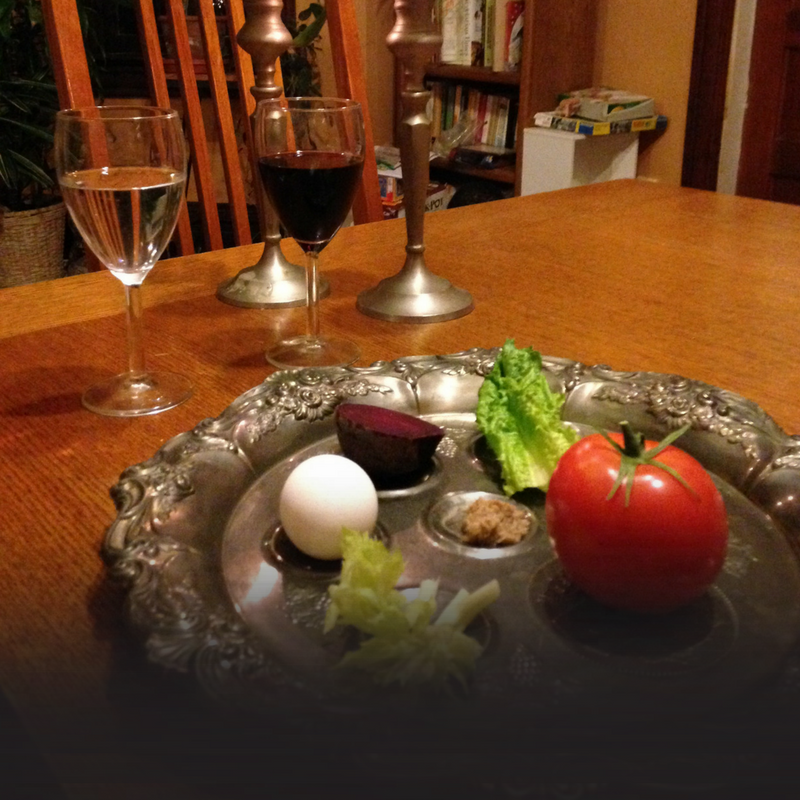
Haggadah Supplements
Get one-page source sheets to help stimulate discussion at your seder table, designed to reengage in the work of liberating our world just as the Israelites were liberated from Egypt.
more
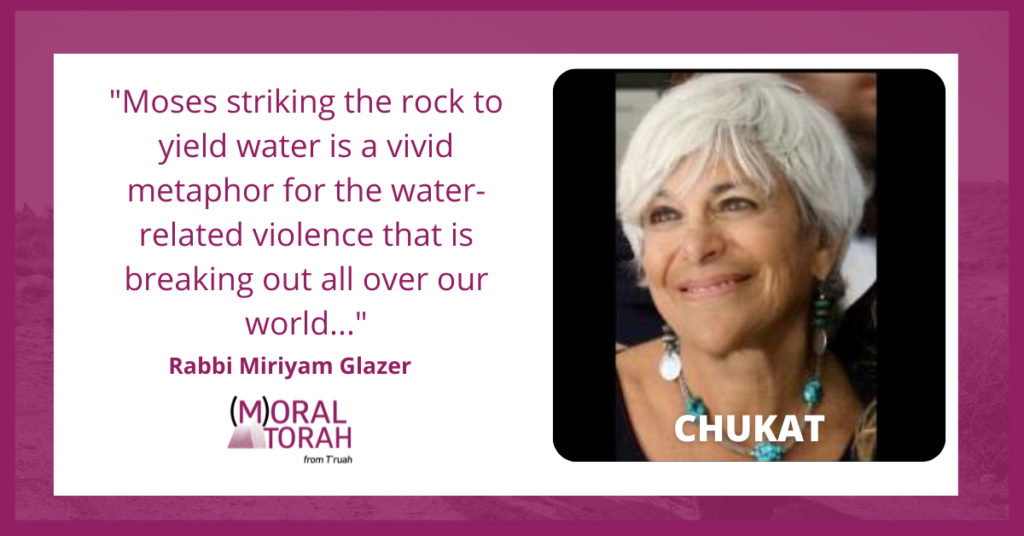
“And the community was without water….”
Our Torah depicts what can happen to us in a world without water... Moses striking the rock to yield water is a vivid metaphor for the water-related violence that is breaking out all over our world — particularly in the Middle East, as well as in South Asia and Africa.
more
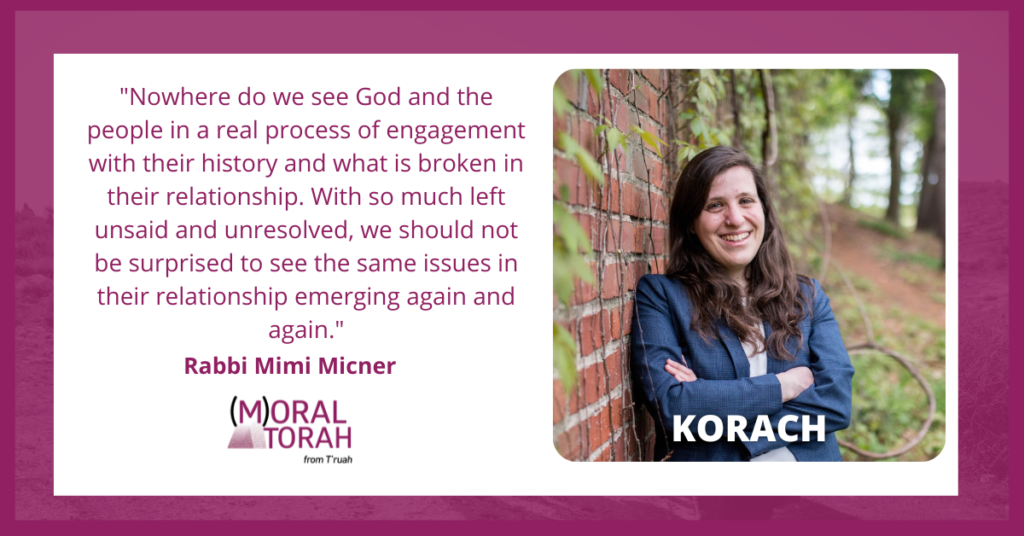
Transformation Will Only Come Through Honesty About Our Past
Nowhere do we see God and the people in a real process of engagement with their history and what is broken in their relationship. With so much left unsaid and unresolved, we should not be surprised to see the same issues in their relationship emerging again and again.
more
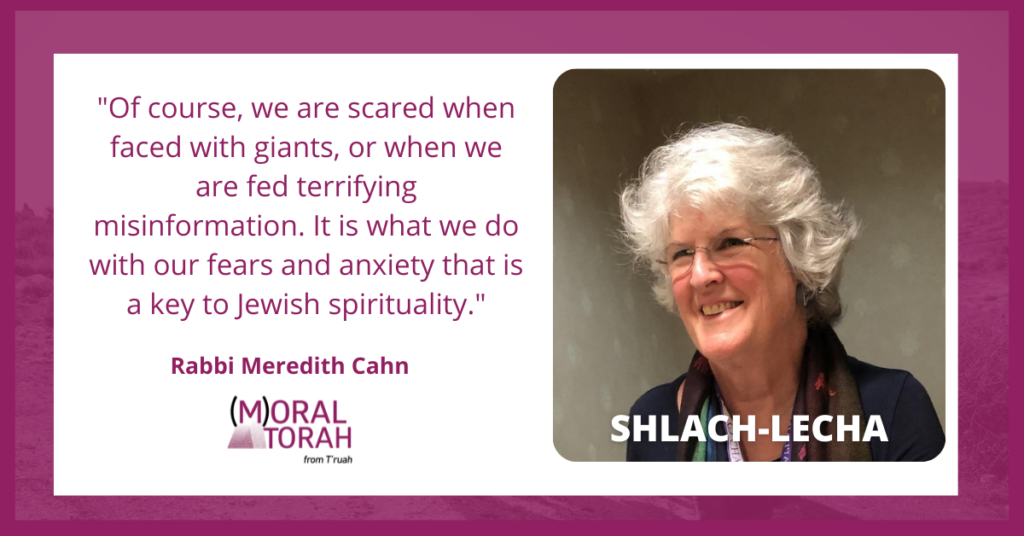
Quieting our Amygdalas
Of course, we are scared when faced with giants, or when we are fed terrifying misinformation. It is what we do with our fears and anxiety that is a key to Jewish spirituality.
more
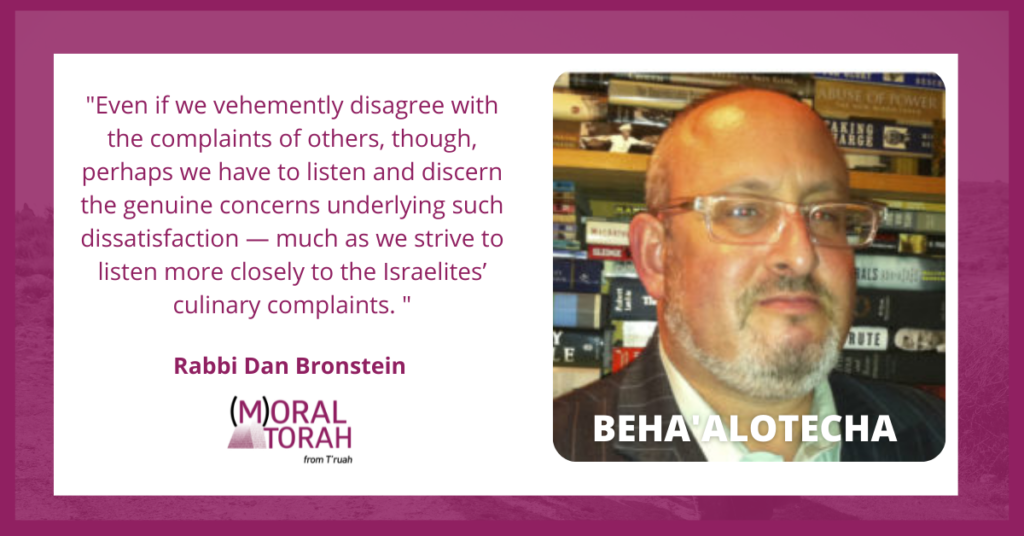
Stopping to Listen to Complaints
Even if we vehemently disagree with the complaints of others, though, perhaps we have to listen and discern the genuine concerns underlying such dissatisfaction — much as we strive to listen more closely to the Israelites’ culinary complaints.
more
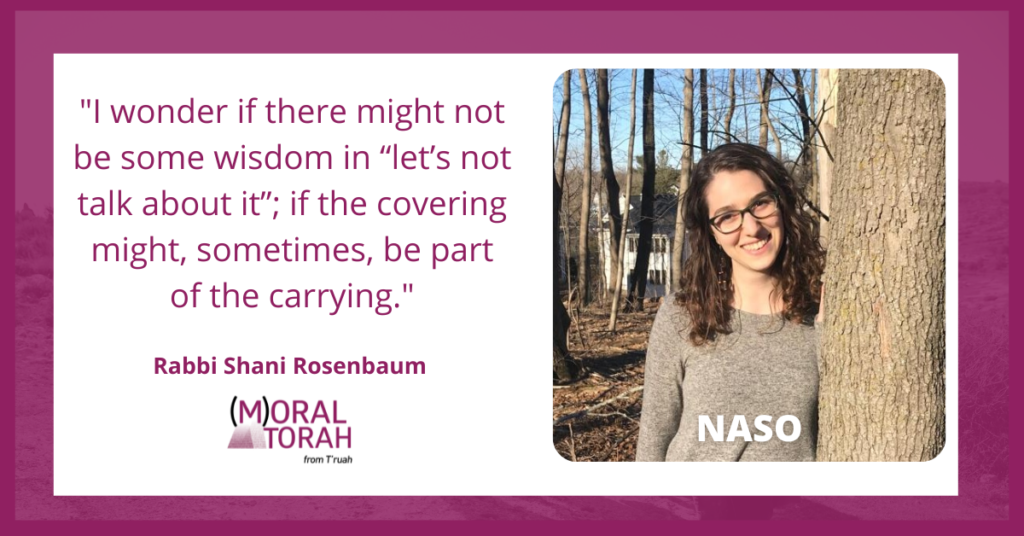
The Art of Burden-Bearing
I wonder if there might not be some wisdom in “let’s not talk about it”; if the covering might, sometimes, be part of the carrying.
more
A Sampling of Moral Torah 2022
In honor of Shavuot, we present a sampling of Moral Torah spanning from last Shavuot to today.
more

What Does Shavuot Have to Do With Justice?
The best way to celebrate the sixth of Sivan might well be to engage in some activity on behalf of the poor or the stranger or in some justice-oriented project or endeavor. That’s what I plan to do.
more
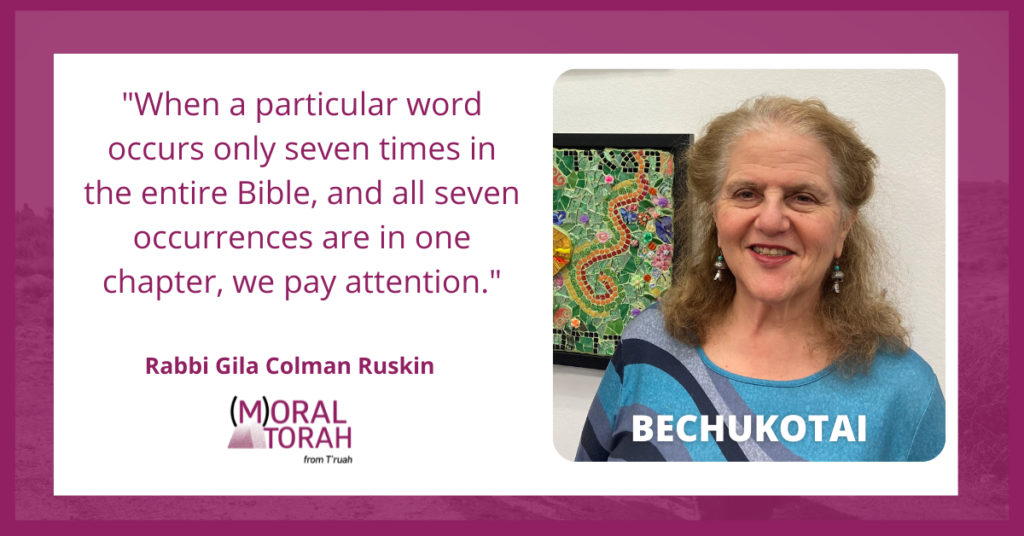
Not Just Chance: Intentional Choice
When a particular word occurs only seven times in the entire Bible, and all seven occurrences are in one chapter, we pay attention.
more

Fostering an Equitable Urban Landscape
In Parshat Behar, urban spaces were not considered a factor in the wellness and stability of society. Today, we must acknowledge our centuries of disenfranchisement and commit to fostering an urban landscape of equity and opportunity.
more



